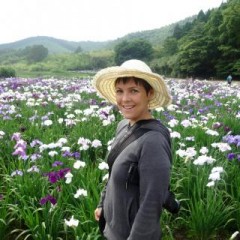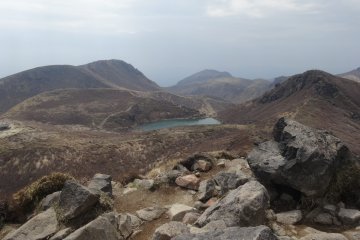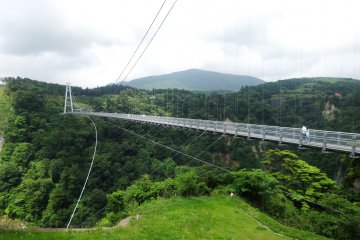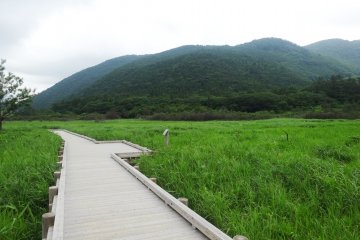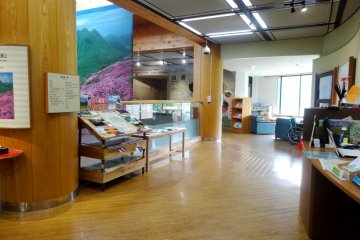If you're lucky enough to be able to take to the roads of Kyushu's interior, don't miss stopping off at the Tadewara Wetlands. You won't see a single sign advertising this tiny jewel of a park, sitting in the western shadow of the Kuju Mountain Range, literally within sight of the Yamanami Highway. But for those in the know, a stop at this unique ecosystem can be extremely rewarding.
Park your car anywhere in the Chojabaru crossroads area (in the Kokonoe "town" area) and make for the Chojabaru Visitor's Center on the northeastern corner of the intersection. This small unassuming building contains a wealth of information on the surrounding wetlands, as well as the environment of the Kuju peaks themselves. Two floors of exhibits are presented, and well-translated laminated information sheets (in English, as well as Chinese and Korean) are available for nearly all of the panel displays. There are also two videos you can watch in the center - the upstairs film covers the flora and fauna of the wetlands throughout the year while the show downstairs focuses on the annual burning of the grassy area to promote regrowth and regeneration of plant life. Both films are subtitled in English.
From the center's bottom floor, you exit directly into the wetland. There are several marked courses you can follow - the main ones range from twenty to sixty minutes, though that is assuming you take a VERY leisurely pace. For most of the walk, you'll be treading over the cedar planks of a purpose-built boardwalk. It allows you to get close-up views of the flowers and plants growing in the wetlands without fear of trampling over them. While our visit was during a bit of an "off time" for blooming flowers, you can find various species here, many of which are listed as endangered or critical. Venture deep enough into the wetlands and the surrounding forest and you might even spot a tanuki (a type of "raccoon dog" native to Japan)!
For those who want to learn a little bit more, the visitor's center offers guided walks (in Japanese) on certain Saturdays and Sundays throughout the year. Walks last for two hours and are led by a local volunteer group dedicated to the preservation of the natural beauty of the Kuju area. If you have any further questions in English, the staff at the visitor's center was VERY capable of fielding all of our queries.


